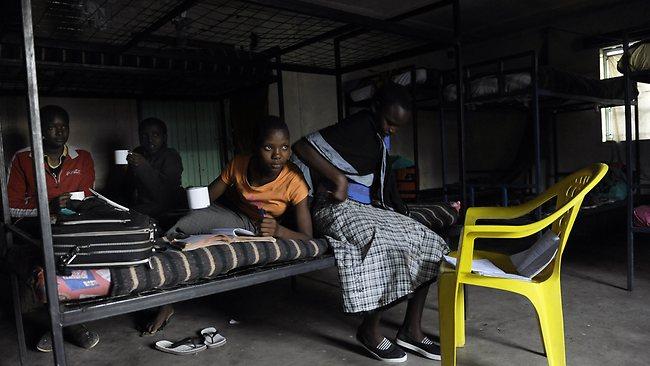Female Genital Mutilation (FGM) is still widely practised in the African country of Djibouti. Despite efforts by the government and development agencies to curb this practice, culture, tradition and religion continue to slow down progress.
According to Hassan Omar Mohamed, a Member of Parliament from the Djibouti House of Assembly, FGM is a deeply-rooted practice that has stood the test of time.
The United Nations Population Fund (UNFPA) describes FGM as a practice that involves altering or injuring the female genitalia for non-medical reasons. It is internationally recognised as a human rights violation.

Globally, it is estimated that 200 million girls and women alive today have undergone some form of FGM. UNFPA states that, although FGM is declining in the majority of countries where it is prevalent, most of these are also experiencing a high rate of population growth – meaning that the number of girls who undergo FGM will continue to grow if efforts are not significantly scaled up.
As a result, in 2019 Djibouti created the Parliamentary Group of Population and Development (PGPD) – an eight-member formation of four men and an equal number of women MPs – to which Omar Mohamed is the president.
Its objective is to contribute to the promotion and protection of the fundamental rights of populations; promote access to education, health, family planning and to encourage the full implementation of the programme of action of the ICPD.
Besides, in February, the PGPD organised an interregional conference on the follow-up of the ICPD25 that brought together parliamentarians from African and Arab countries.
Moreover, the Government of Djibouti has adopted, signed and ratified the following international instruments that contribute to the eradication of FGM. These include:
- The Convention on the Elimination of All Forms of Discrimination Against Women;
- The Declaration on the Elimination of Violence Against Women; and,
- The Additional Protocol to the African Charter on Human and Peoples Rights on the Rights of Women (Maputo Protocol).
To harmonise international commitments on ICPD the Government of Djibouti developed a five-year National Strategy for the Abandonment of FGM.
“The main objective of this strategy was to promote the total abandonment of FGM by respecting physical integrity and promoting the health of women and girls,” said Omar Mohamed.
UNFPA has also supported several ICPD activities in Djibouti, including updating the Sexual and Reproductive Health Essential Package Protocol to include FGM and established a mobile anti-FGM brigade.
Omar Mohamed noted that considering that ICPD issues are part of the SDGs which are interlinked, there is a great commitment to meet the targets by 2030.
However, socio-economic challenges that slow down progress which includes massive unemployment, inequality and the rise of extremism remain a stumbling block.
“To counter all the challenges that arise, economic and institutional reforms are needed to support and respect the SDGs and the commitments made within the framework of the ICPD process,” he said.
The government has produced a national strategy to respond to the socio-economic challenges that hinder the country’s progress towards achieving the SDGs.
